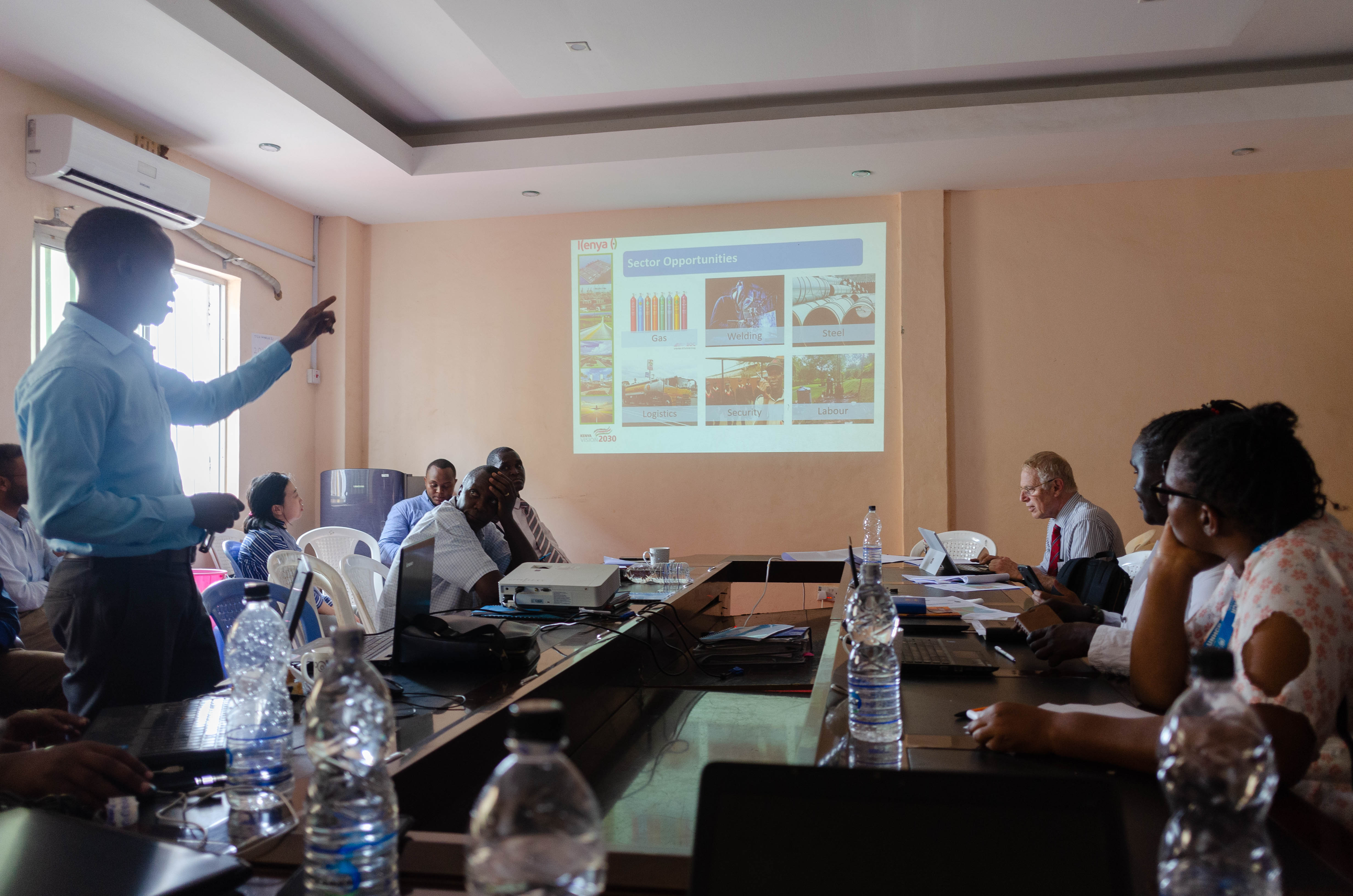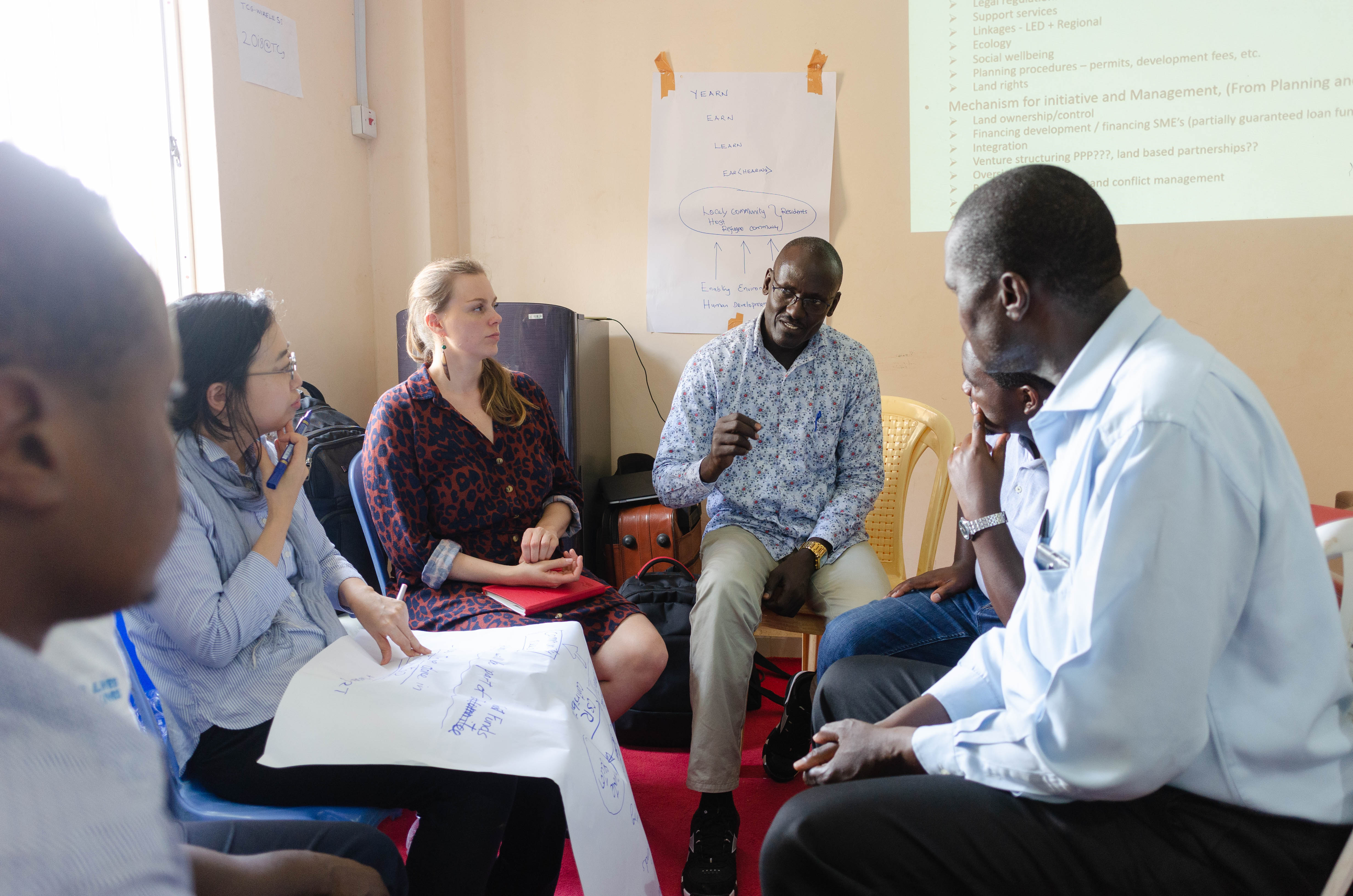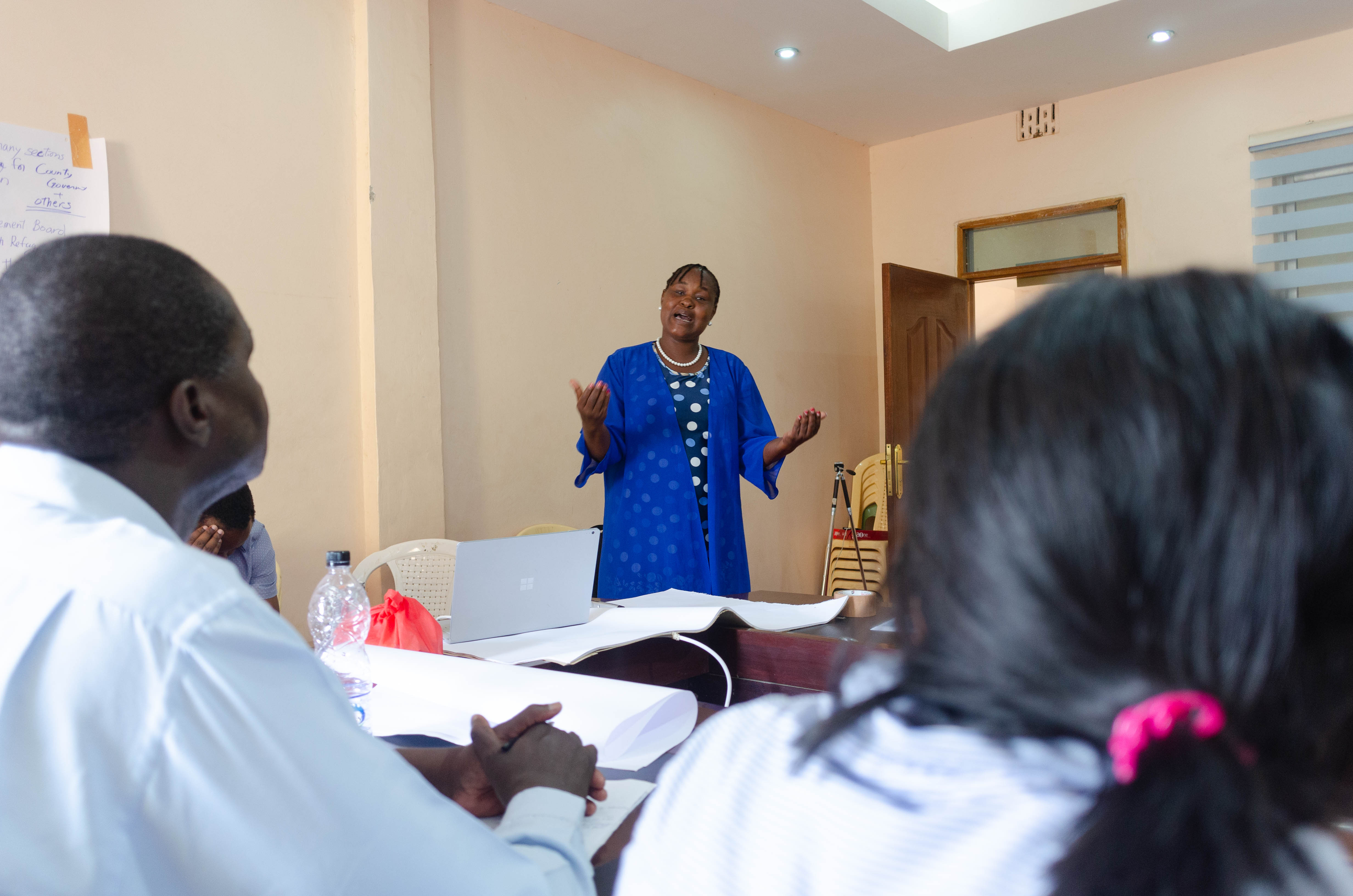
Kalobeyei, Kenya 20 March 2020-- UN-Habitat, in collaboration with Turkana Country Government, recently hosted the Kalobeyei Corridor Infrastructure Planning Private Sector Workshop in Kakuma, Turkana County, Kenya.
The workshop was unique in that it gathered together a spectrum of stakeholders including representatives from UN-Habitat, UNHCR, the Kenya National Government, host and refugee communities, NGOs, private sector and development partners. The objective of the workshop was to explore and gather perspectives on the role of spatial planning in promoting local economic development in Kakuma-Kalobeyei, a region known for hosting a large population of refugees from East Africa for the past decades.
The workshop covered a range of focal areas which included the KISEDP (Kalobeyei Integrated Socio-economic Development Plan), the LAPSSET Corridor project, Land Governance in Turkana county, opportunities for enterprise development in Kakuma and approaches to strengthening the humanitarian and development nexus in Turkana West.

The workshop was a combination of presentations, plenary discussions and planning exercises, from which several key issues emerged. One key issue was related to the unique, mutually-beneficial relationship between refugees and host community in Kakuma-Kalobeyei. A take-away from discussions on this issue was that there was a need to leverage this unique context to enhance local economic development, including attracting external investments and properly circulating funds from organisations such as the WFP.
Another recurring theme was the role of pastoralism in urbanization, with questions raised over how urbanization in Kakuma-Kalobeyei will be accommodating the pastoralist practices of the host community and whether adequate recognition is being given to the value of livestock. In the same vein and in ensuring that urbanization is reflective of enduring cultural practices, there was discussion around the issue of communal land and how it could potentially be leased to protect pastoralist practices.
This workshop was a platform for stakeholders to express and understand a variety of perspectives on the key issues arising from the urbanization of Kakuma-Kalobeyei. Following this workshop, UN-Habitat will be working closely with all stakeholders to ensure the continuation of the mutually-beneficial spatial and economic development of Kakuma-Kalobeyei, including close collaborations from key donors and partners such as the Government of Japan and Cities Alliance.
“We hope, together with the private sectors, other partners, and the local community, we are able to come up with solutions, to innovate, and to look at best practices that are able to provide the environment necessary for economic growth,” said Abraham Ekai Losinyen, Chief Officer of Finance, Ministry of Finance and Economic Planning, Turkana County Government.
